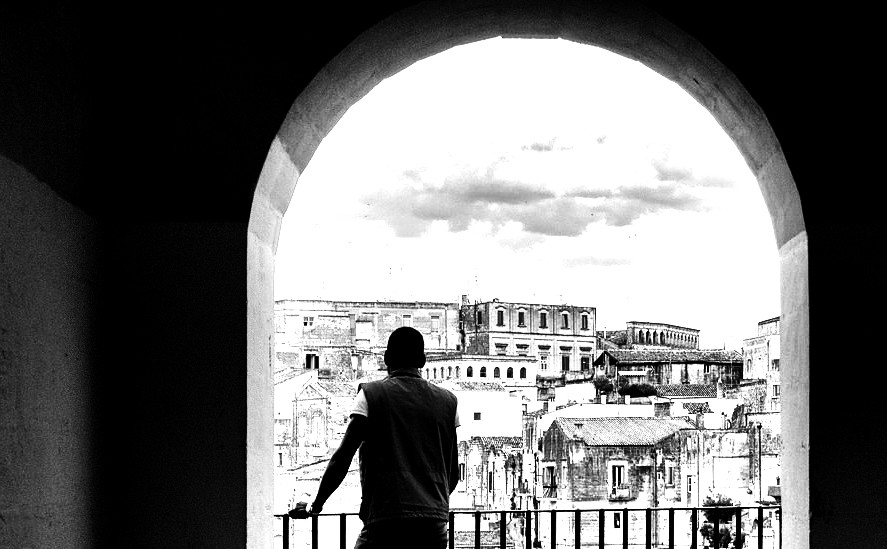
It is true that the ease with which I can detach myself from people and places is freeing -- but it is equally frightening

Sara Suleri writes, in her memoir Meatless Days, "Those who travel curiously imagine that returning is somehow sweeter, less dangerous, than seeking out some novel history." The truth of this claim dawned on me a while back, when news after news of unexpected occurrences began reaching me in a pattern uncanny enough to be considered a secret ploy custom-made for my consumption alone.
The string of distasteful news that had been piling on finally superimposed itself some three months ago, when a friend passed away in an accident. To this date, I still don’t understand what shook me more -- the news itself or the manner in which it was conveyed, in the most impersonal, mechanical of ways; social media.
My former class fellow had died a most tragic and unexpected death. Some of us closer to him are still reeling from the mere shock of it. I don’t blame them. People just entering their 20s aren’t supposed to be rolling out condolences for their friend, are they? This wasn’t what they’d taught us at school. As for myself, it made me sit and reflect for a long time; this shocking incident that had stirred a ripple in all my friends’ hearts for a variety of reasons.
Almost as if by the flick of a wand, it took me back to Suleri’s quote on returning. Due to the nature of my parent’s jobs, I’d change cities from time to time while growing up. One could assume that leaving places -- and people -- behind must come easily to me by now.
Less painful.
More distant.
But then it would only be a partial truth.
It is true that the ease with which I can detach myself from people and places is freeing -- but it is equally frightening. For a myriad of reasons. While it is true that not all places become your home, but the ones that do, leave you with the pangs of separation once you have to part with them.
I’d always imagined returning back to a sleepy town I’d once called home. It was there where I’d made friends that were going to remain constants of my life for a long time. The desire to travel and explore different places is not everyone’s cup of tea. Some prefer to stay in one place all their lives. The thought of leaving unnerves them; if the thought ever crosses their mind. As Henry Murray would like to call it, everyone has their own personal hierarchy of needs.
For most of us though, life doesn’t present us with a choice. Sometimes we are forced to leave a place behind. Whether we are prepared for it or not, in all our lives, there does come a moment when we are supposed to let go so as to make way for the future. And thus, begins our lifelong wish to return; at least once in life, to the place where our stories started from.
In the naivety of teenage, I’d always believed that going back will be easy, simple yet fabulous. It was a narrative that I’d always looked forward to be a part of. Somehow, it had kept me going. Not once had I envisaged a future where some of us even won’t get the choice to return. To measure the difficulty of returning was another struggle altogether. It was a topic I’d dared not breach for many evenings to come following the incident.
All the things that had made returning seem desirable are now gone. The school building where most of my cherished memories sprung, from what I hear, is now demolished rubble and no longer home to the corridors I’d longed to walk in again. Most of the people who had once resided in the place I called home are now scattered all across the globe. Those who have stayed behind have changed in ways I do not seem to comprehend. The sleepy hill town I was once fond of now faces the consequences of inept city planning and rapid commercialisation. The narrative that I had clung to has long since transitioned into a newer reality.
It compels me to ask myself if the effort is even worthwhile. Why should I go back now, when time’s proclivity for change has taken over everything I’d once held near and dear? Suleri was right. In our passion for moving outwards, reaching out to alien lands, we believe that the past will remain the past. We romanticise the idea of home. We think it would still be safely ensconced in our memories; unfazed by the ravages of time. Only when the time to confront the past saunters up our doorway we realise how much has changed since we last looked the other way.
It nags us with the question, "So where do you go from here now?" And we do not know which answer to give because, in all honesty, all of them feel like the wrong ones.